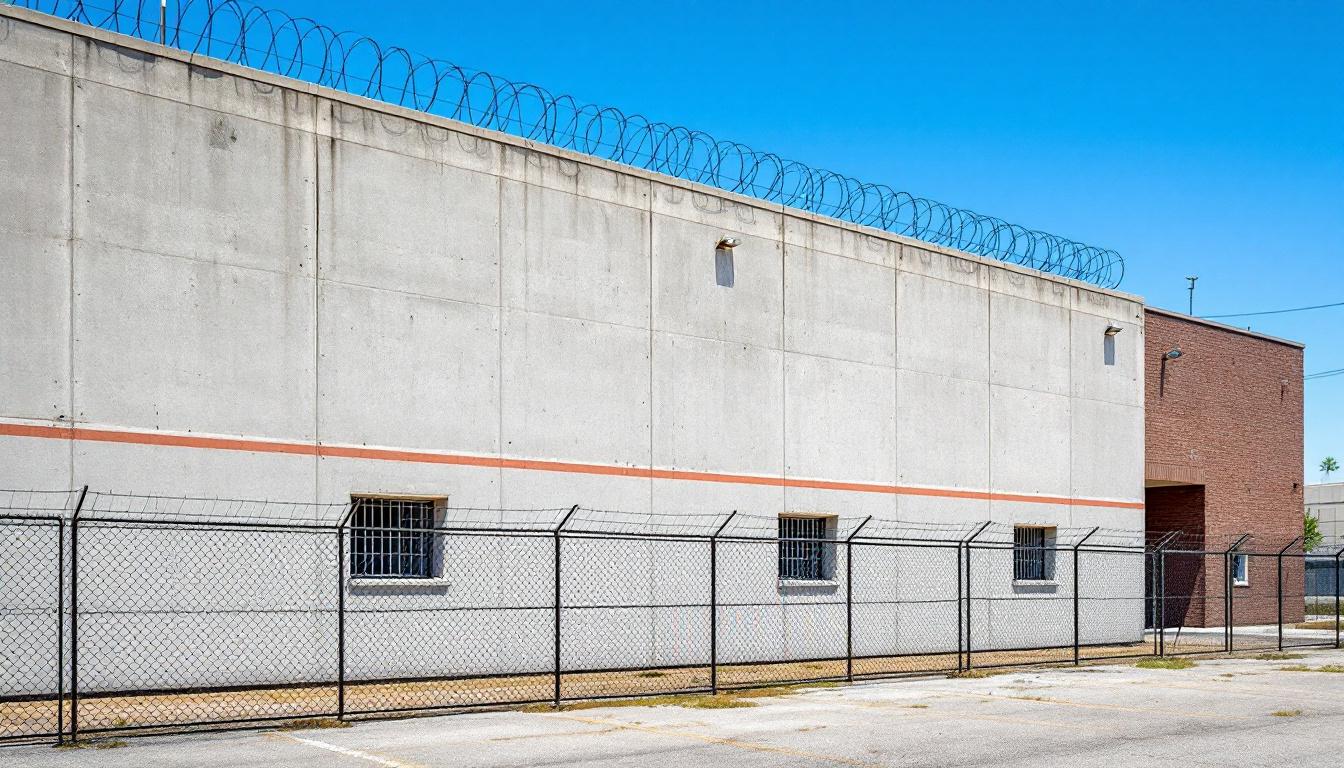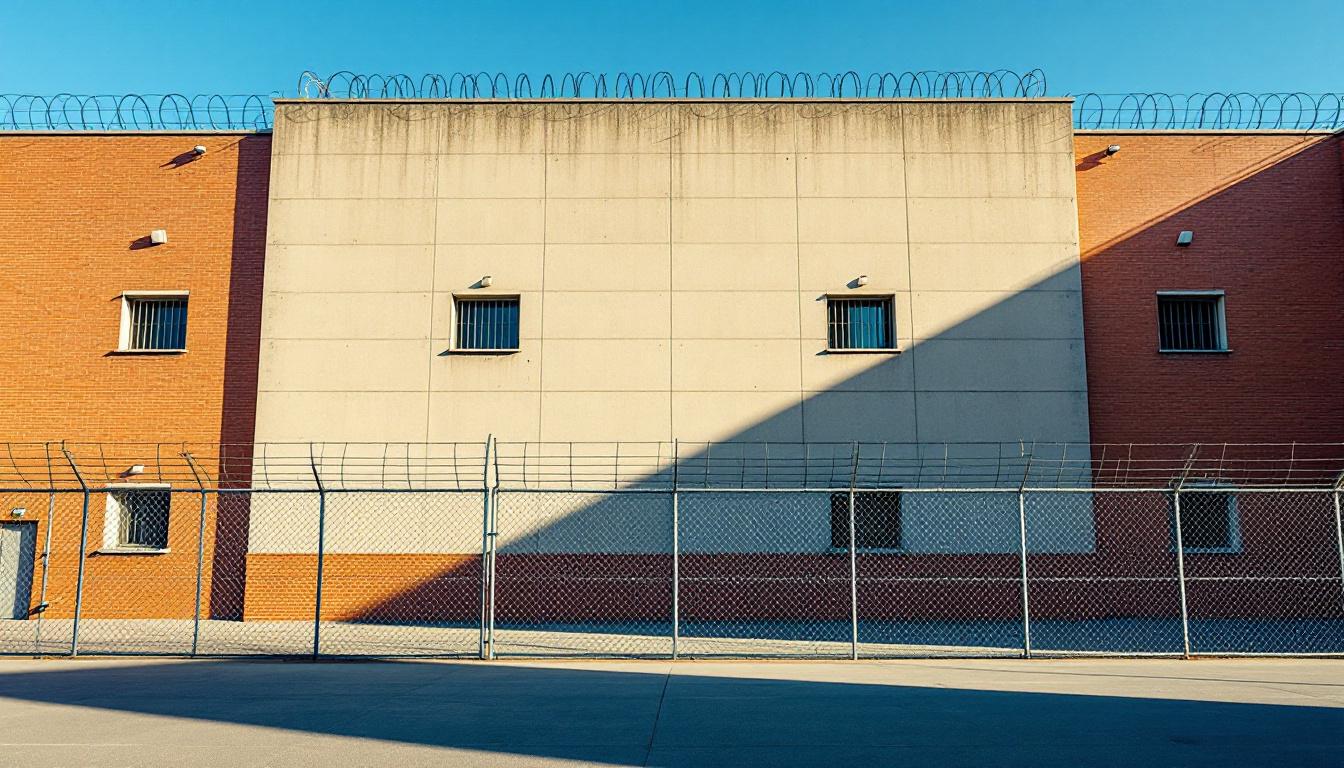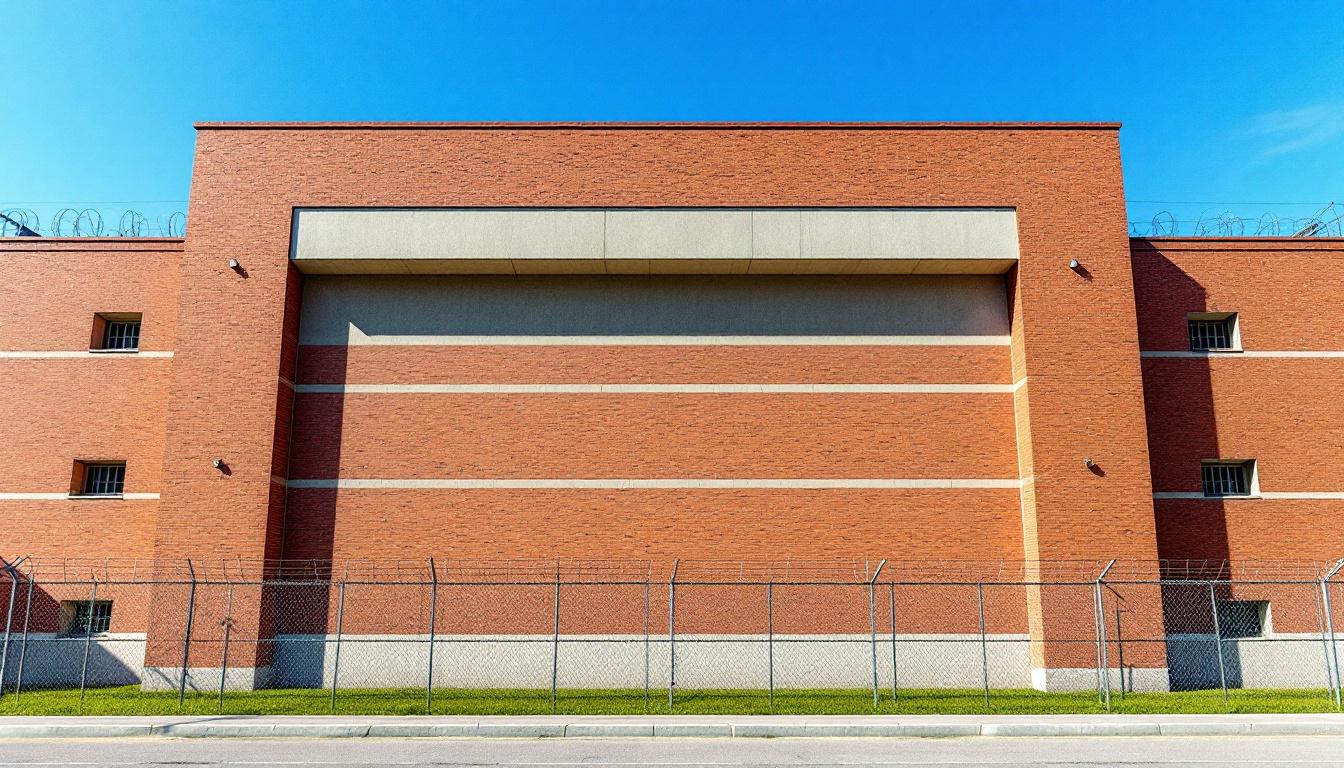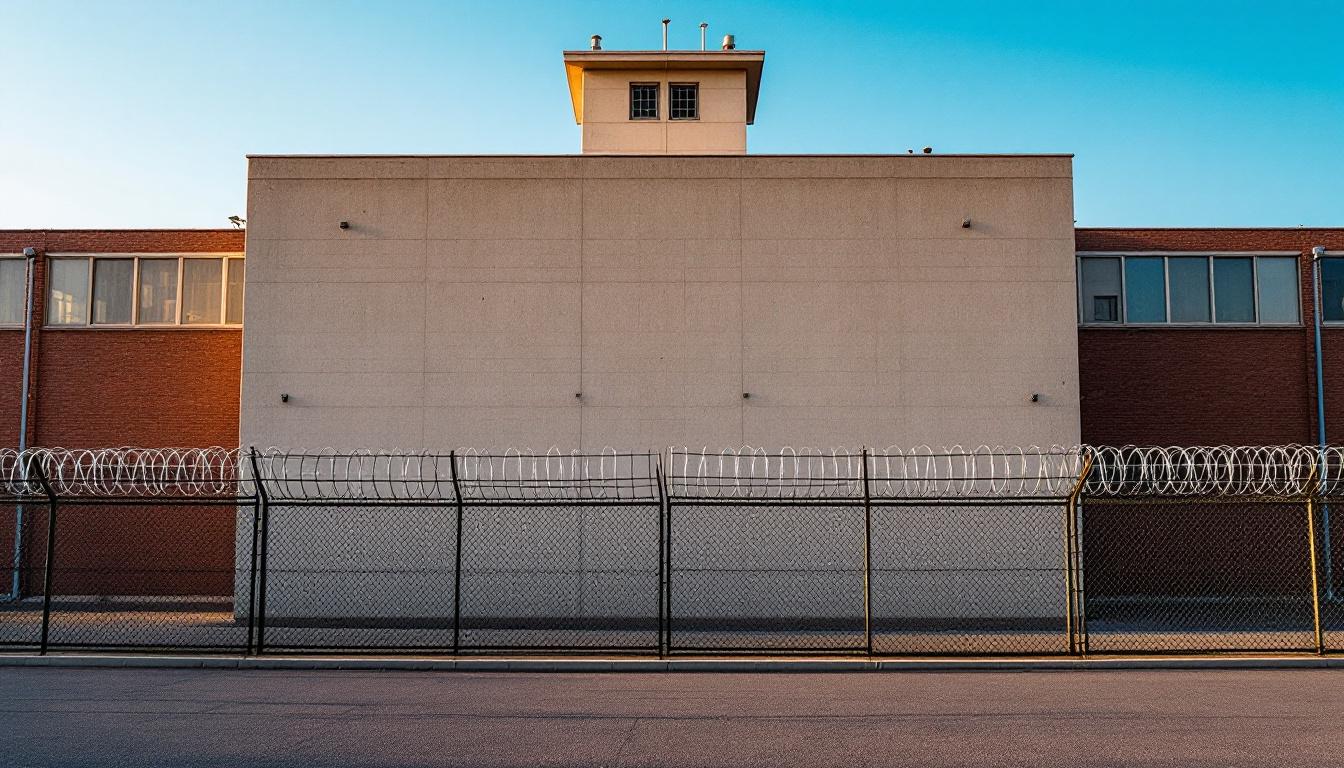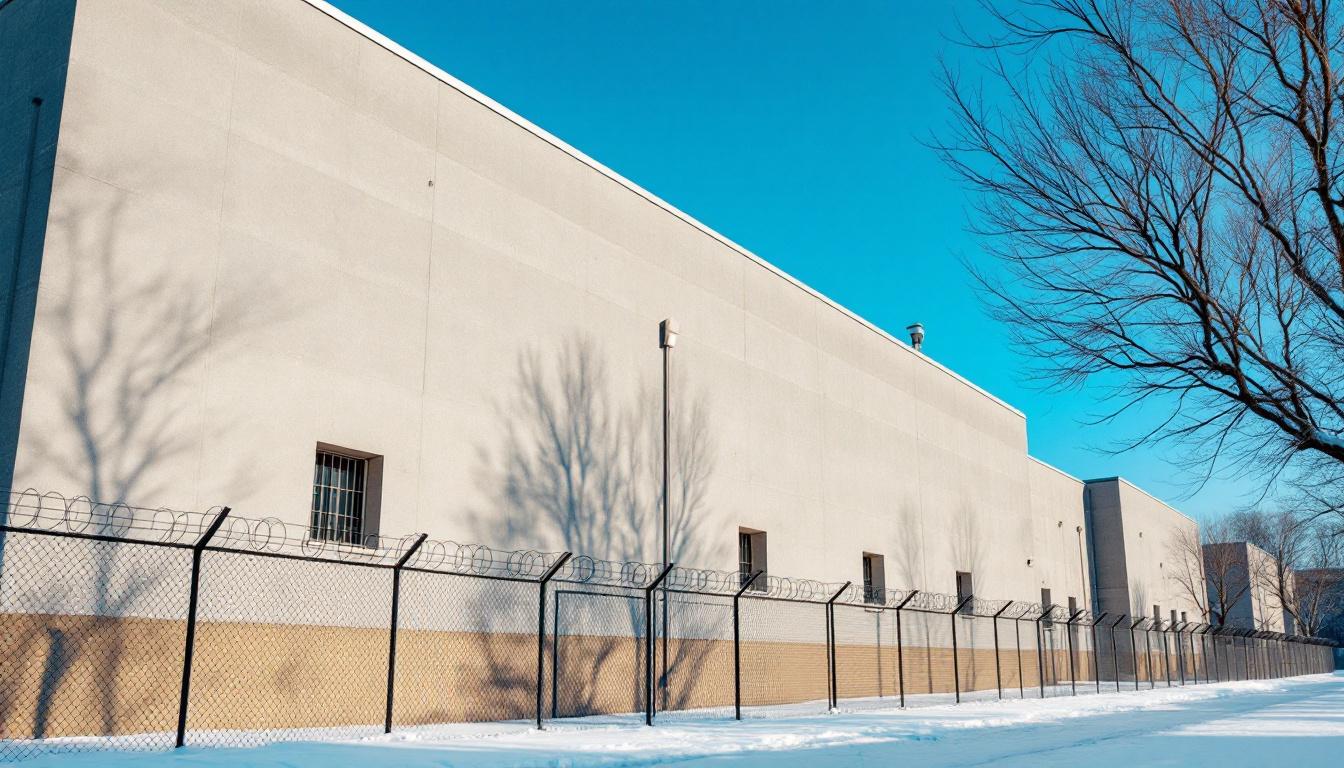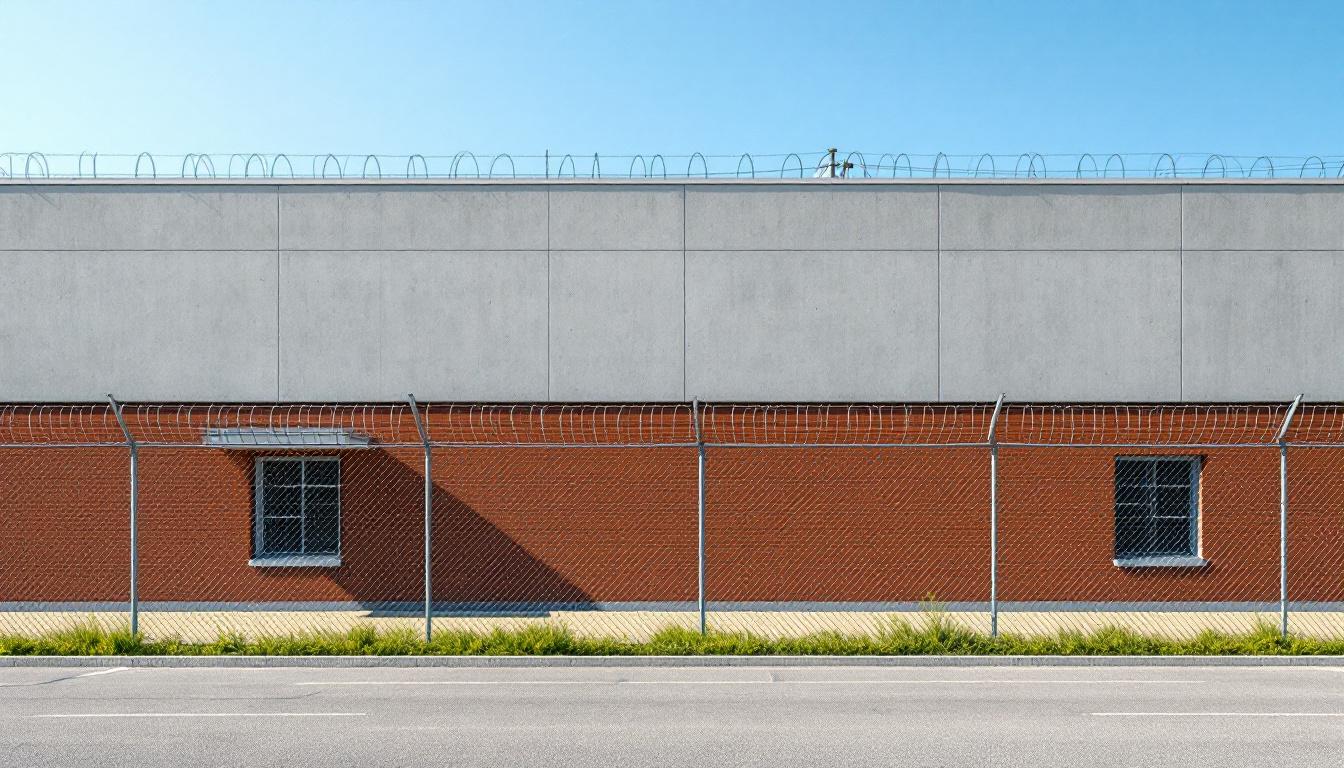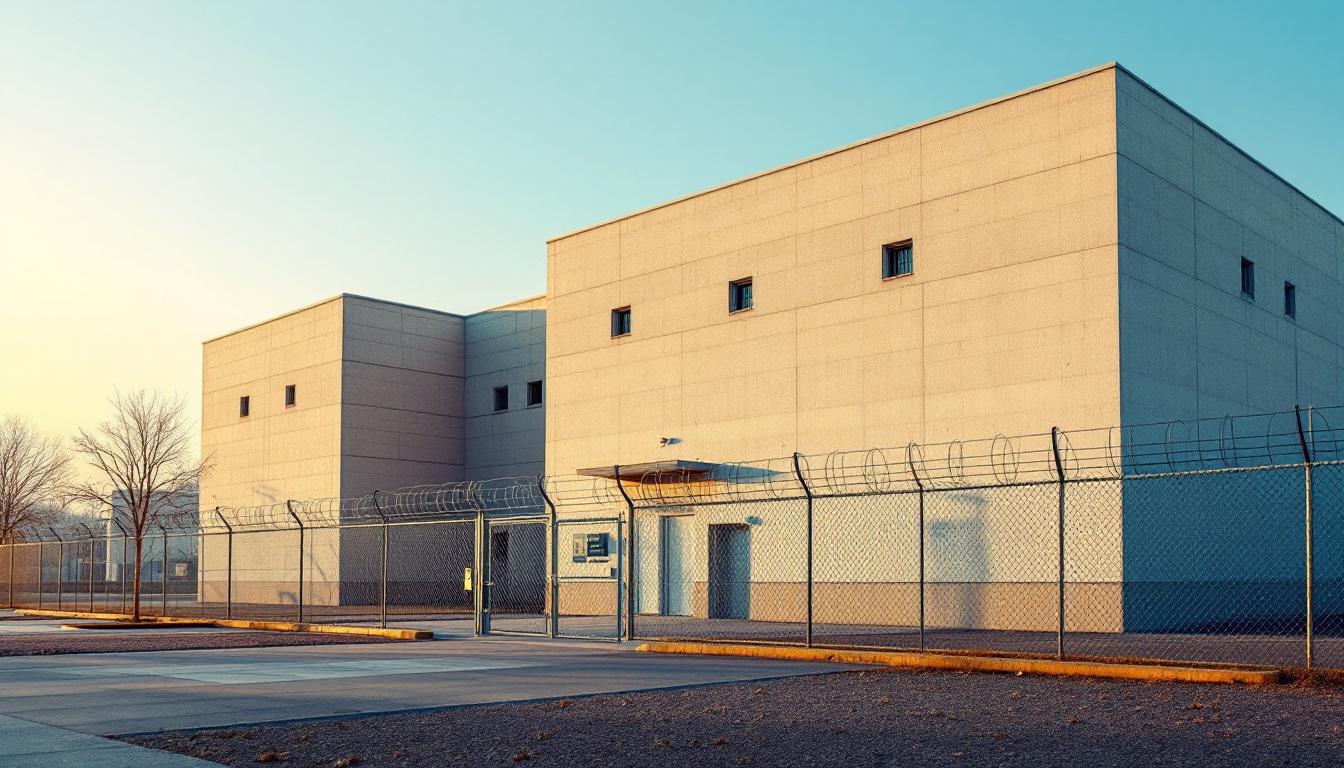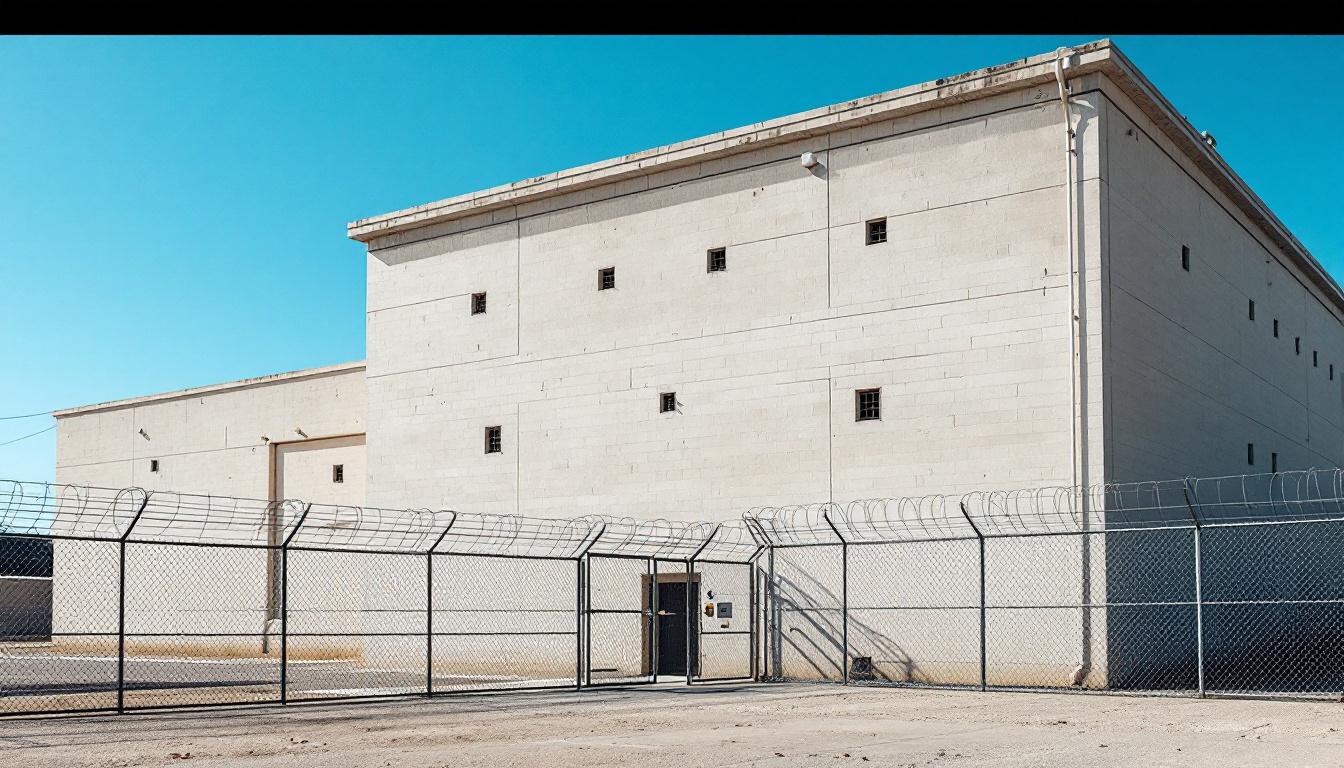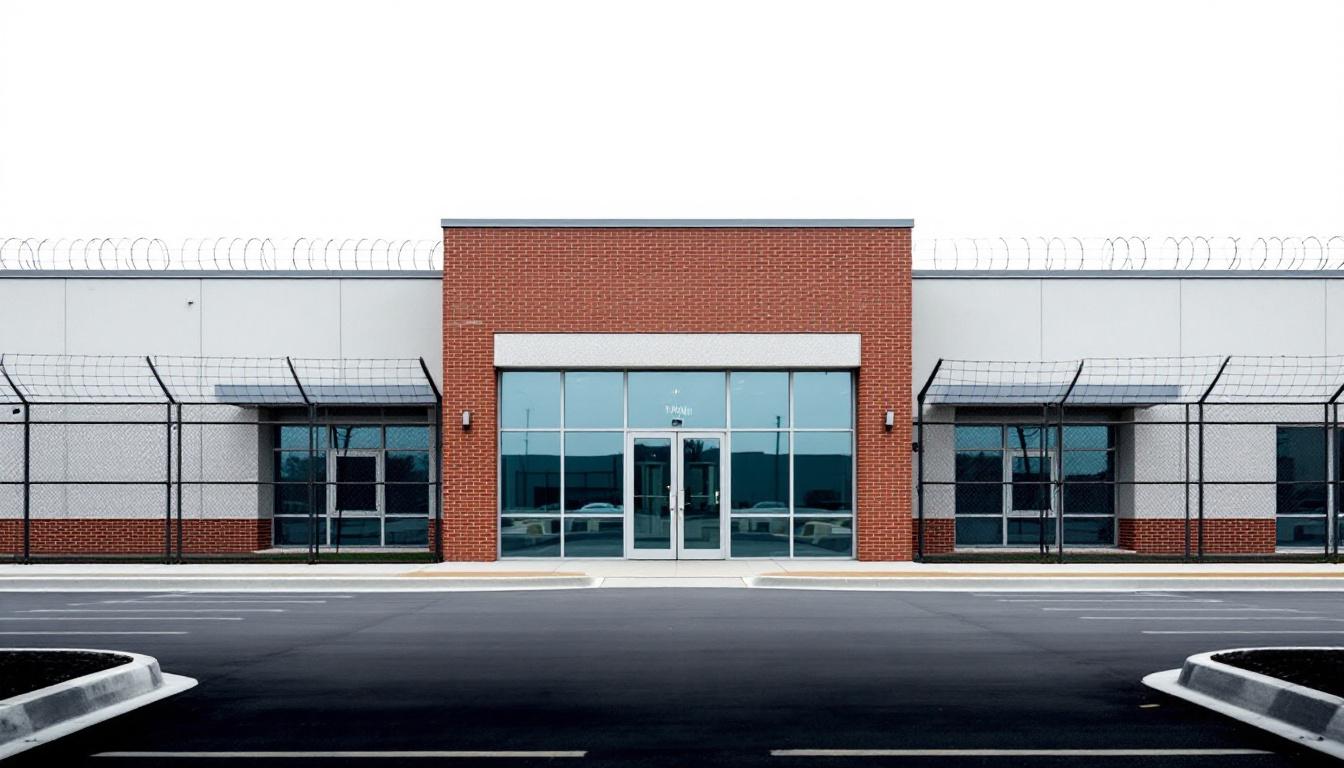
Quick Navigation
How to contact an inmate at Grant Parish Detention Center
This comprehensive guide will walk you through how to connect with an inmate at Grant Parish Detention Center. Follow the steps below to find an inmate and send letters and photos:
- Search for the inmate using our search tool below
- Create your account or log in to Penmate
- Write your message (up to 6,000 characters)
- Send instantly - inmates receive printed copies daily
Find an Inmate
Search for an inmate to start communicating today
Tip: You can search by first name, last name, or inmate ID number
To contact a person at Grant Parish Detention Center start by searching for the person on the official facility website. Perform a search by following these steps:
- Step 1: Enter their first name and last name into the search form and click "Search"
- Step 2: Locate their inmate record
- Step 3: Write down their Inmate ID and any housing information provided
Important! Be sure to enter the person's full name. Nicknames should not be used.
How to Send Messages to Inmates

You can use your phone or computer to send emails, letters, and photos to an inmate. Messages are sent electronically to inmate tablets or kiosks at the facility. If you would like to send a message, start by searching for an inmate at Grant Parish Detention Center.
Sending Photos and Postcards

A great way to send love and support to a loved one at Grant Parish Detention Center is to send photos and postcards. It only takes a few minutes to send photos from your phone and it makes a huge difference. You can also mail postcards with words of support and inspiration, or design your own postcard for special moments like birthdays and holidays.
Important! Be sure not to send any explicit photos or they may not be approved by the facility. You can also use a photo printing app like Penmate to make sure your photos are printed at the correct size (4x6 or 3x5) and are mailed according to the rules and regulations of Grant Parish Detention Center.
Frequently asked questions about Grant Parish Detention Center
-
How long does it take to deliver a message?
If you're sending an email message your letter is usually delivered within 24-48 hours. For messages sent via mail you should expect delivery within 3-7 days. All messages will need be approved by Grant Parish Detention Center.
-
How much does it cost to send a message to Grant Parish Detention Center?
You can send a message free using your phone or mail a message via USPS for the price of a $0.60 stamp and envelope. You can also purchase credits or e-stamps from services starting at $1.99.
-
What services can I use to contact an inmate at Grant Parish Detention Center?
Penmate
You can use Penmate to send letters and photos to an inmate from your phone. It's an easy way to stay in touch during your loved one's incarceration. Use the inmate locator to find an inmate's location and contact information, then you can send messages within a few minutes.
Securus messaging
Securus may be another option for communicating with an inmate at Grant Parish Detention Center. You can create a friends and family account and purchase credits to send messages. All messages will be reviewed and must be approved by the facility.
JPay
Some county jails and state prisons may support sending messages with JPay. You must register an account with the system, find your loved one, and purchase stamps to send messages. For some locations you can also attach photos.
Smart Jail Mail
You may also check if Smart Jail Mail is available at Grant Parish Detention Center. Smart Jail Mail is operated by Smart Communications and has contracted with some state and county jails. After purchasing credits, your messages and photos are sent to the facility, printed out, and then handed out to your loved one.
-
What is the mailing address of Grant Parish Detention Center?
Mailing address:
Grant Parish Detention Center
485 Richardson Dr
Colfax, LA 71417
Phone: (318) 627-3724 -
What are the visiting hours at Grant Parish Detention Center?
Visiting hours at Grant Parish Detention Center vary by housing unit and security level. Generally, visits are scheduled on weekends and holidays, with some facilities offering weekday visits. Contact the facility directly at (318) 627-3724 or check their website for the current visiting schedule. Visits typically last 30-60 minutes and must be scheduled in advance.
-
What items are prohibited when sending mail to Grant Parish Detention Center?
Prohibited items typically include: cash, personal checks, stamps, stickers, glitter, glue, tape, staples, paperclips, polaroid photos, musical or blank greeting cards, hardcover books, magazines with staples, and any items containing metal or electronics. Only send letters on plain white paper with blue or black ink. Photos must be printed on regular photo paper (no Polaroids). Always check with Grant Parish Detention Center for their specific mail policies.
-
How do I send money to an inmate at Grant Parish Detention Center?
You can send money to an inmate at Grant Parish Detention Center through several methods: 1) Online using JPay, Access Corrections, or the facility's approved vendor, 2) Money orders mailed directly to the facility with the inmate's name and ID number, 3) Kiosks located in the facility lobby, or 4) Over the phone using a credit or debit card. Fees vary by method, typically ranging from $2.95 to $11.95 per transaction.
-
Can I schedule a video visit with an inmate at Grant Parish Detention Center?
Many facilities now offer video visitation as an alternative to in-person visits. At Grant Parish Detention Center, video visits may be available through services like Penmate, Securus Video Connect, GTL, or ICSolutions. Video visits typically cost $10-20 for 20-30 minutes and must be scheduled in advance. You'll need a computer or smartphone with a camera and reliable internet connection. Contact the facility for their specific video visitation policies and approved vendors.
-
What identification do I need to visit an inmate at Grant Parish Detention Center?
All visitors must present valid government-issued photo identification such as a driver's license, state ID, passport, or military ID. Minors must be accompanied by a parent or legal guardian who can provide the minor's birth certificate. Some facilities require visitors to be on the inmate's approved visitation list, which may require a background check. Contact Grant Parish Detention Center for specific ID requirements and visitor approval procedures.
-
How can I find out an inmate's release date?
To find an inmate's release date at Grant Parish Detention Center, you can: 1) Use the online inmate search tool if available, 2) Call the facility's records department, 3) Contact the inmate's case manager or counselor, or 4) Have the inmate provide this information during a call or visit. For privacy reasons, some facilities only release this information to immediate family members.
Facility Overview
Contact Information
Grant Parish Detention Center485 Richardson Dr
Colfax, LA 71417
Phone: (318) 627-3724
Official Website

About Grant Parish Detention Center
Detention centers serve as critical junctions where community safety intersects with individual rehabilitation, and this foundational principle guides operations throughout Louisiana’s correctional landscape. Grant Parish Detention Center, LA operates within this framework in Colfax, providing secure housing while maintaining connections between incarcerated individuals and their surrounding communities.
Located in the heart of Grant Parish, this LA correctional facility typically emphasizes programs that prepare individuals for successful reintegration into their home communities. The facility generally offers educational opportunities, substance abuse counseling, and vocational training that align with regional employment needs. Family visitation programs often serve as cornerstone elements, recognizing that maintaining these vital relationships benefits both the population services and the broader community. Mental health support and medical care typically complement these offerings, addressing underlying issues that may have contributed to criminal behavior.
The detention center’s approach to offender management generally balances security requirements with rehabilitation-focused programming designed to reduce recidivism. Staff members often work to create structured environments where individuals can develop life skills, complete educational goals, and participate in counseling services. Through coordination with local organizations and service providers, the facility may facilitate connections that extend beyond release, helping formerly incarcerated individuals access housing assistance, employment opportunities, and ongoing support systems that strengthen community ties throughout the Colfax area and beyond.
Programs & Services
Through comprehensive programming designed to address multiple facets of personal development, the Grant Parish Detention Center demonstrates its commitment to fostering meaningful transformation within its population. The facility’s approach recognizes that effective rehabilitation requires addressing not dedicated immediate behavioral concerns but also the underlying factors that contribute to criminal involvement, creating pathways for sustainable reintegration into the community.
Educational initiatives typically form the cornerstone of developmental opportunities, with programs that may supply basic literacy instruction, GED preparation, and continuing education courses tailored to various skill levels. Furthermore, vocational training programs often include hands-on instruction in marketable trades, equipping participants with practical skills that enhance their employment prospects upon release. These educational and vocational components work synergistically to build both academic foundations and professional competencies, addressing the educational gaps that frequently correlate with recidivism rates.
The facility’s support services encompass a diverse array of therapeutic and personal development programs designed to address behavioral patterns and promote emotional well-being. Faith-based services typically provide spiritual guidance and community connection for those seeking such support, while conflict resolution programs may supply participants with essential communication and problem-solving skills. Additionally, specialized initiatives such as victim awareness programs foster empathy and accountability, and animal care programs often include therapeutic benefits through structured interaction with animals. Life coaching services typically complement these offerings by helping participants develop goal-setting abilities and practical life management strategies, creating a comprehensive support network that addresses both immediate needs and long-term success factors essential for successful community reintegration.
Daily Life & Visitation
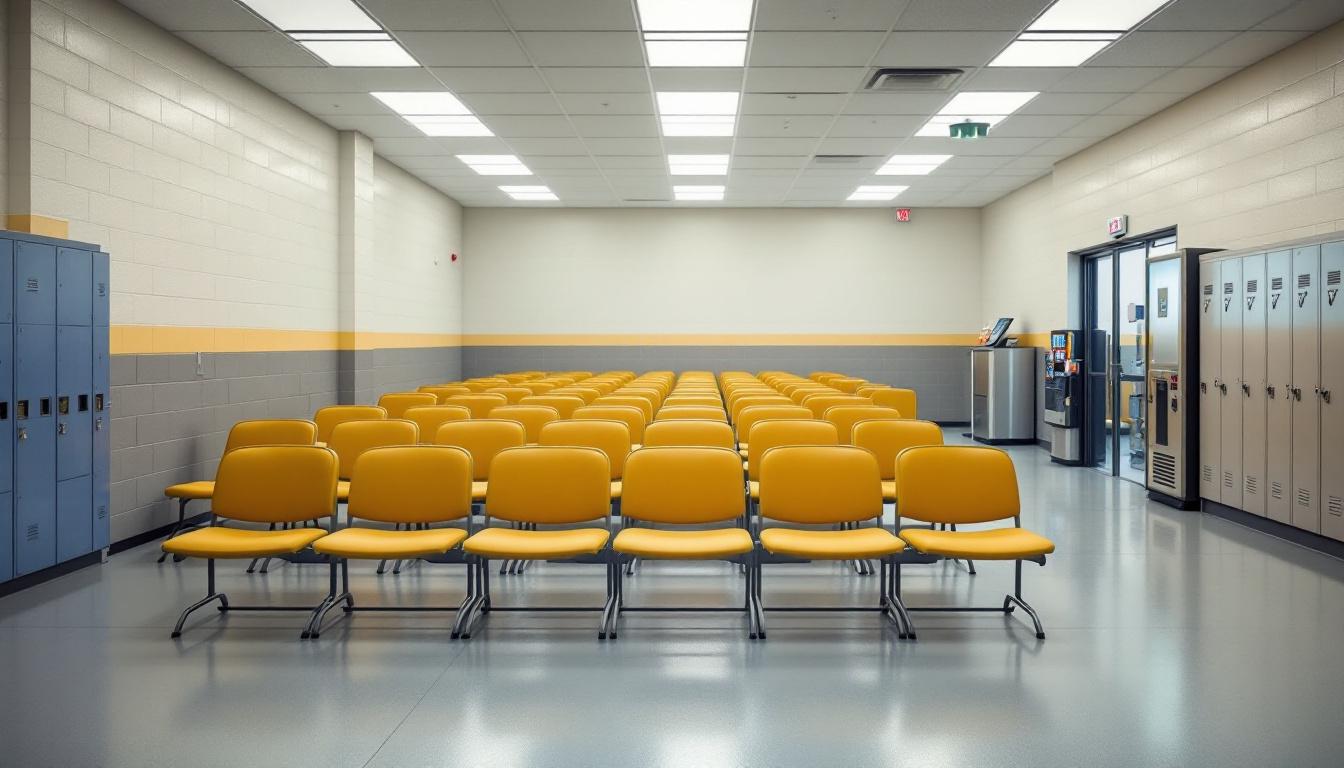
Organizational protocols and systematic scheduling actively shape every aspect of life within the Grant Parish Detention Center, where structured routines supply the framework for managing the daily experiences of the population. At present, residents typically follow established schedules that begin with early morning counts and progress through designated periods for meals, programming, and supervised activities. The facility’s administrative approach generally emphasizes maintaining order through predictable routines, with staff actively coordinating movements between housing areas and common spaces throughout the day.
The population resides in housing units that are organized according to classification levels and security requirements, with accommodations typically featuring dormitory-style or cell-based arrangements depending on individual circumstances. Living spaces generally include basic furnishings and storage areas for approved personal property, while residents may access commissary services to supplement their daily necessities. Furthermore, dining arrangements usually involve scheduled meal times in designated areas, with the population receiving meals that meet standard nutritional requirements and accommodate certain dietary restrictions when medically necessary.
Structured programming schedules supply various opportunities for the population to engage in educational classes, vocational training, and recreational activities that may include indoor and outdoor exercise periods. Work assignments within the facility often provide residents with opportunities to contribute to daily operations while developing job skills, typically encompassing roles in food service, maintenance, and facility cleaning. Although security protocols govern all interactions, visitation policies generally allow for scheduled visits with approved family members and friends, while communication options may include telephone access and correspondence services that help maintain important connections with support systems in the community.
Ready to Connect?
Start communicating with your loved one today
Search for an Inmate
